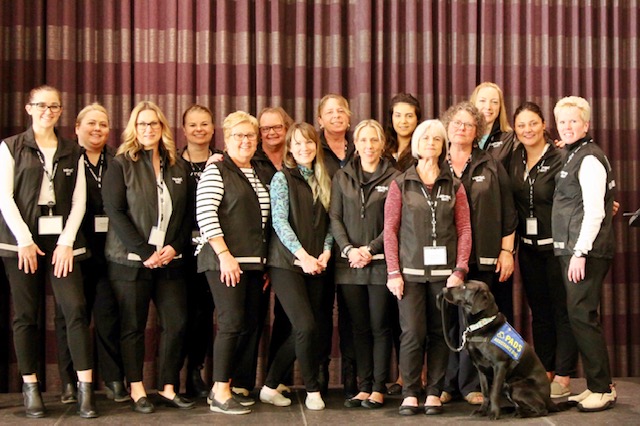This award was formally named “Staying Healthy”. Our Excellence in Quality category names changed in 2020 to reflect the updates to our BC Health Quality Matrix. Visit our Categories and Criteria page to find out more.
The overdose public health emergency has significantly impacted first responders, frontline workers and people with lived and/or living experience. Workers on the front lines frequently respond to complicated traumatic events, including multiple overdoses and overdose deaths, and are susceptible to stress injury and trauma. Work-related stress can accumulate over time, and it is imperative that workers are offered timely, accessible personal and team support. They require access to tools, skills and education to help them cope with the tremendous grief and loss they experience while helping people.
Research conducted in 2017 identified considerable challenges in finding and accessing services and supports, and the available services were not always culturally or gender sensitive. This illustrated the need for customized psychosocial support to help the helpers of the overdose public health emergency and led to the formation of the Provincial Overdose Mobile Response Team.
The team consists of 11 full time crisis intervention specialists, four on-call crisis intervention specialists, a team manager, program coordinator, two program assistants and Orca, a trauma assistance dog. Its primary goal is to provide short-term crisis intervention and support to health care workers who are at the forefront of the provincial overdose crisis.

The Mobile Response Team is a provincial resource, travelling to communities throughout British Columbia to provide services and support. And because point-of-care workers seeking trauma assistance often need to request referrals or join wait lists, the team offers return visits and scheduled programming four days a week in order to provide diverse, accessible wellness options.
As a result, 16,900 people, 1,180 agencies and 77 communities have been served as of May 31, 2019.
The team’s trauma-informed services include one-to-one and group defusing sessions as well as debriefing and educational workshops.
All sessions acknowledge the impacts of the overdose public health emergency and provide an opportunity to speak about how those who work on the frontlines are impacted. These open, facilitated discussions with teams of workers helps to reduce the stigma of talking about mental wellness in the workplace, and increases knowledge amongst team members.
The mobility of the team allows members to conduct outreach and provide prompt and effective support across BC. Services are provided to local, rural and remote locations and multiple settings such as office spaces, police, fire and paramedic stations, overdose prevention sites and community centres. This reduces barriers for those in need to access the team’s services and support. It also provides the opportunity for team members to build rapport and trust with individuals and groups through face-to-face contact.
The Mobile Response Team plays an important role in building internal capacity and resilience to respond to stressful events in the workplace. With the help of the team, first responders, point-of-care workers and people with lived experience will continue to provide high quality care while staying healthy themselves.

